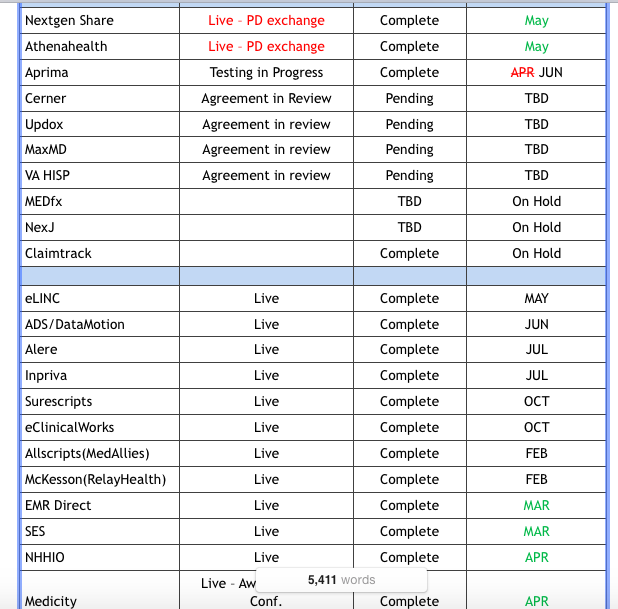By John Halamka, MD
Twitter: @jhalamka
Every technology has an adoption journey. The classic Gartner hype curve travels from a Technology Trigger to the Peak of Inflated Expectations followed by the Trough of Disillusionment. It often takes years before organizations reach the Slope of Enlightenment and finally achieve a Plateau of Productivity.
Have you noticed that Congress and the popular press have entered the Trough of Disillusionment for EHRs and interoperability over the past month?
Congressional staffers writing the 21st Century Cures bill (which is not yet law) seem to have concluded:
- we don’t have interoperability (although no one is sure what exactly we have and do not have)
- therefore we need more standards and that will solve all the business, political, and policy barriers to health information exchange
- The Health IT Standards Committee must not be doing a good job because there are not enough standards
- Therefore we should disband it and create a new politically appointed body
- That new body will invent all the standards we need and then force vendors to stop their information blocking behavior (whatever that is), enabling precision medicine
USA Today, in one of the most one sided articles I’ve read, confuses ACA and HITECH, ignores the data about EHR adoption/health information exchange and concludes that EHRs “don’t talk to each other”, whatever that means.
It’s time to take a step back, define our requirements, examine our current state, and then focus on closing any gaps we find.
I oversee 5,000 patient data exchanges at BIDMC every day. 50,000 patients view/download/transmit their data every month. We’re in beta testing with apps using Apple HealthKit, connecting home devices, iPhones and our EHR. We have numerous affiliates with bidirectional data exchange. There are few technology limitations. The real challenges are political and policy barriers.
The Direct protocol, although more complex than the RESTful methods used by Facebook, Amazon and Google that we should embrace, has provided a foundation for health information exchange across the country. Below is a snapshot of the current Massachusetts State HIE (the Mass HiWay) connections to Health Information Services Providers (HISPs), creating thousands of connections among hospitals and eligible professionals nationwide. Every week, some new practice or hospital comes knocking at the BIDMC door and within hours we can create a connection.
 Interoperability is real. Interoperability has a very positive trajectory. Saying otherwise is oversimplifying the reality of ongoing good work in progress.
Interoperability is real. Interoperability has a very positive trajectory. Saying otherwise is oversimplifying the reality of ongoing good work in progress.
When confronted by naysayers, we have only three choices:
- Give up and declare defeat
- Get angry, frustrated, and flustered by the negativity
- Move forward with gusto, identifying gap after gap, then solving them. We eat the elephant of interoperability one bite at a time.
Over the past week, I’ve found myself setting aside my emotions. I’ve redoubled my commitment to doing the right thing, hiring great people and broadly communicating the change processes needed to ensure more data is exchanged with more people for more reasons, while still respecting patient privacy preferences.
I’ve thought long and hard about the day to day criticism we hear from government, special interests, and various press resources. We have to avoid being distracted by the politics of any given moment. In a year and half the federal government will change completely. Every major political leader in healthcare IT has changed since 2013.
If we stay above the fray, work on interoperability one practice and one institution at a time, and toil diligently to enable new infrastructure such as record locator services/provider directories/quality registries, we will create a learning healthcare system that is better with each passing year.
So next time you encounter the Trough of Disillusionment about interoperability, do your best to educate stakeholders about the trajectory we’re on and the challenges we can overcome by focusing and working together.
Maybe we can all stand on a hilltop and sing “I’d Like to Teach the World to Interoperate (In Perfect Harmony)” celebrating our progress to date and highlighting the work yet to be done?
John D. Halamka, MD, MS, is Chief Information Officer of Beth Israel Deaconess Medical Center, Chairman of the New England Healthcare Exchange Network (NEHEN), Co-Chair of the HIT Standards Committee, a full Professor at Harvard Medical School, and a practicing Emergency Physician. This article was originally published in his blog Life as a Healthcare CIO and is reprinted here with permission.

